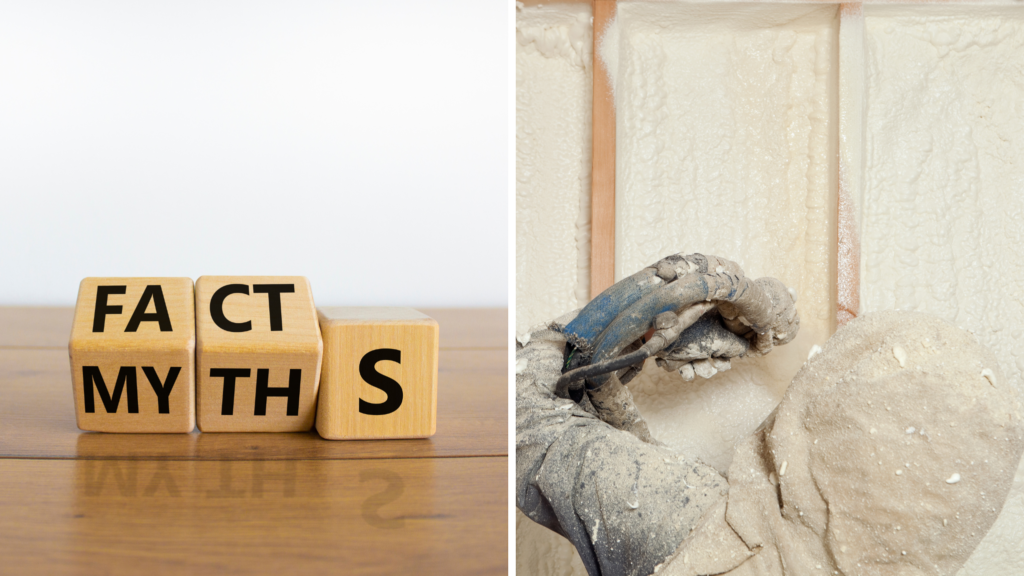Spray Foam Insulation: How Its Longevity Stacks Up Against That of Other Materials

Good day to all of you who also own your homes! Insulation is a topic that I want to discuss with you today since it is of the utmost significance. We are all in agreement that it is necessary to have this component installed in our homes so that we can keep our families safe and ensure that our houses will last for many years. How is it possible to zero in on the best option when there seems to be an endless number of possibilities? Don’t worry about it! I’m here to lend a hand by contrasting the longevity of spray foam insulation with that of some of the more common types of insulation. In that case, let’s get to work!
When It Comes to Spray Foam Insulation, How Long Does It Take to Degrade?
First things first, let’s discuss the highlight of the event, which is spray foam insulation. It is available in open-cell and closed-cell variations, both of which provide good thermal resistance and air sealing properties. However, for how long does it continue? Prepare to be shocked:
Spray foam insulation has impressive longevity; if it is installed and maintained correctly, it can endure for more than half a century. That’s correct; I said fifty! Throughout its existence, it keeps its R-value and its air sealing capabilities, which guarantees that it will continue to be comfortable and efficient with energy.
Now that we have a better understanding of the extraordinary features that spray foam insulation possesses over its lifetime, it is time to compare it to other types of insulation to see how it stacks up against the competition.
An Examination in Relation to Other Insulating Materials
When it comes to insulation, there is a wide variety of choices available to consider. Let’s take a look at some of the most prevalent types of insulation and compare the amount of time they last to that of spray foam:
Fiberglass Insulation is a popular choice since it is economical and has a long lifespan (usually between 20 and 30 years). However, its effectiveness may diminish over time, particularly if it is subjected to moisture or if it is not fitted in the correct manner. Therefore, despite the fact that it is a respectable alternative, the longevity of this kind of insulation cannot nearly compete with that of spray foam.
Cellulose: Cellulose insulation, which boasts an eco-friendly composition made from recycled paper, has a lifespan that varies between 20 and 30 years—quite an astonishing feat in and of itself. Cellulose insulation can be purchased at most home improvement stores. However, just like fiberglass, its effectiveness might deteriorate over time if it is not installed correctly or if it is exposed to moisture. Although it is an additional viable alternative, spray foam insulation is still the superior choice in terms of its longevity.
Mineral Wool: Mineral wool insulation is superior to cellulose and fiberglass due to its longer lifespan, which ranges between 30 and 40 years. It has a natural resistance to dampness, fire, and insects, among other things. But even so, its durability is not quite on par with that of insulation made of spray foam.
Polyisocyanurate, also known as Polyiso, is a rigid foam insulation that has a lifespan comparable to that of spray foam insulation, which is around 50 years or more. In comparison to spray foam insulation, it does not perform as well in terms of air sealing, despite the fact that it has great thermal resistance.
So, what’s the Verdict?
It is abundantly evident that spray foam insulation has a longer lifespan than the vast majority of other types of insulation, with the exception of Polyiso. On the other hand, in comparison to Polyiso, spray foam insulation has an advantage due to its greater air sealing characteristics.
The investment in spray foam insulation is one that is well worth making because it will result in a home that is comfortable, long-lasting, and energy-efficient for a good number of years to come. Because of the unique characteristics of each dwelling, it is essential to thoroughly weigh the benefits and drawbacks associated with each insulation choice before making a decision.
It’s clear that the decision you make today about insulating your home can impact your comfort and wallet for decades to come. Spray foam insulation emerges as a standout choice, offering impressive longevity that exceeds half a century. Its consistent R-value and air-sealing prowess place it head and shoulders above many other materials, only rivaled closely by Polyiso.
But remember, dear homeowner, the effectiveness of any insulation, including spray foam, is highly contingent on proper installation and maintenance. It’s an investment not just in a material but in the skilled workmanship that ensures its optimal performance.
Should you opt for spray foam insulation, you’re choosing a path of energy efficiency, comfort, and sustainability that aligns with the future. It’s a decision that resonates with the responsibility you have towards your family, home, and even the environment.
However, every home is a unique entity, and while spray foam insulation may be the ultimate option for many, it’s vital to consult with a professional who understands your specific needs. Evaluate your choices with care, taking into consideration not only the longevity but also the costs, environmental impact, and the specific demands of your living space.
By making an informed choice, you’re building a cozy haven that not only shelters but thrives, evolves, and sustains. So here’s to your warmth and wisdom, as you make a choice that lasts. Stay cozy, and until next time, keep those energy bills in check and your living spaces comfortable. You’ve got this!
Give us a call today to get your FREE no-obligation quote and find out if your home is a candidate for our eco-friendly, state-of-the-art EcoPolySeal Spray Foam Insulation

